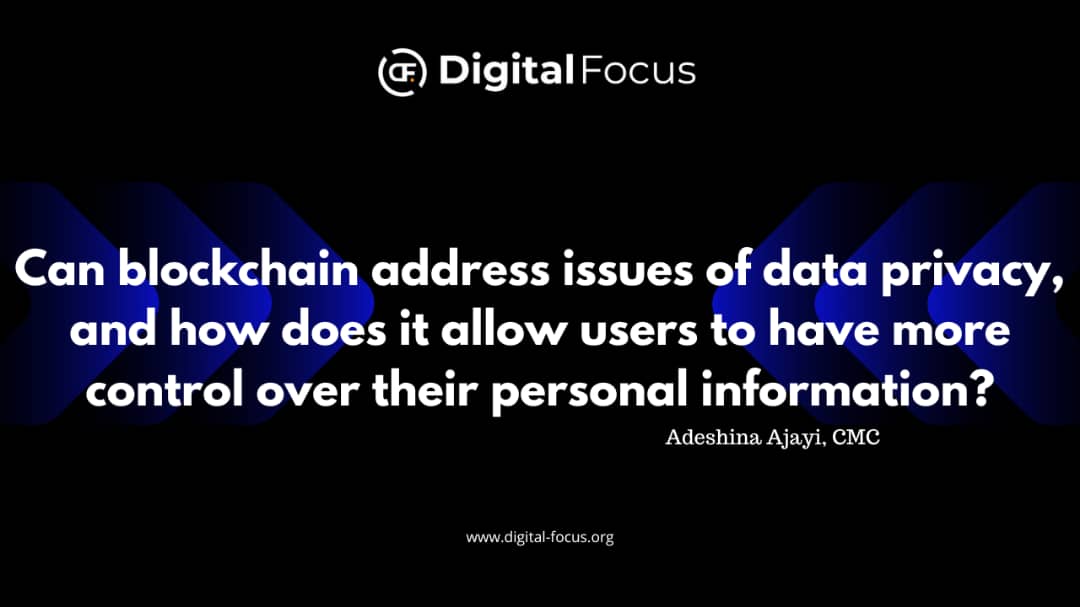
© 2024 Ajayi Adeshina, CMC®
In the contemporary landscape dominated by data, the paramount concern revolves around privacy. Blockchain technology, initially synonymous with cryptocurrencies, becomes a formidable solution to tackle the pressing issues surrounding data privacy. The decentralized and secure framework intrinsic to blockchain holds significant promise, offering users unprecedented control over their personal information in today's data-driven world.
At its fundamental level, blockchain functions as a distributed ledger recording transactions across a network of computers. The inherent decentralization ensures that data is not confined to a central location, thereby minimizing vulnerabilities to single points of failure or unauthorized access—a pivotal factor in fortifying data privacy amid the prevalent threat of large-scale breaches.
Encryption, a foundational principle of blockchain, plays a pivotal role in enhancing data privacy. Data stored on the blockchain is typically encrypted, posing a formidable challenge for malicious entities attempting to decipher sensitive information. This cryptographic layer adds an extra dimension of security, reinforcing the safeguarding of user data.
Furthermore, blockchain introduces consensus mechanisms, wherein network participants must collectively agree on the validity of transactions before they are added to the ledger. This not only ensures data integrity but also establishes a transparent and trustless environment. Users can trust that their personal information is only shared or accessed through a secure and agreed-upon process.
A noteworthy dimension of blockchain's impact on data privacy lies in the concept of self-sovereign identity (SSI). In traditional systems, individuals often surrender control over their personal information to centralized entities. In contrast, SSI on the blockchain empowers users to selectively manage and share their identity information. This paradigm shift allows individuals to grant permission for specific data access, fostering a more granular and user-centric approach to privacy.
Smart contracts, programmable agreements executed automatically when predefined conditions are met, further contribute to data privacy on the blockchain. Through smart contracts, users can establish rules governing the use of their data, ensuring that it is accessed only for legitimate and agreed-upon purposes. This automated governance reduces reliance on intermediaries and minimizes the risk of data misuse.
In conclusion, blockchain provides a nuanced and comprehensive approach to addressing data privacy concerns. Its decentralized nature, encryption mechanisms, consensus protocols, self-sovereign identity, and smart contracts collectively empower users with enhanced control over their personal information. As industries grapple with evolving privacy challenges, blockchain emerges as a promising technological ally, fostering a more secure and user-centric data ecosystem.